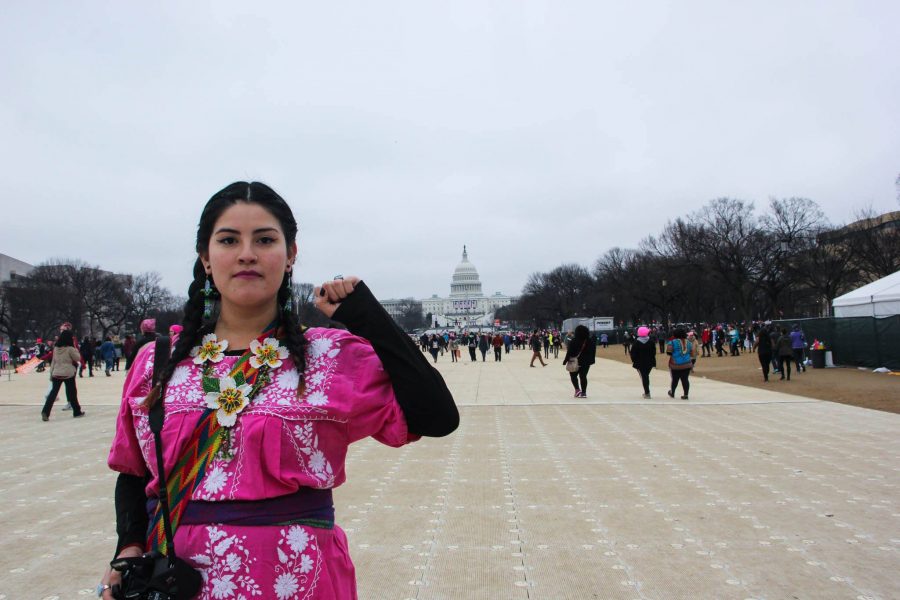This past weekend in cities all across the world women and allies took to the streets in peaceful marches to stand in solidarity for the protection of our rights, our health, our safety and for the future generations to come. Over 2 million people across the world participated in a historic event that was recorded as the largest inaugural protest ever.
On Friday, the new president of the United States, a man who has been accused of sexual violence, a racist bigot, was sworn in as our president. If this isn’t enough of a reason to wake up and exercise our First Amendment, then I would like to explain a little bit of the work I have been involved with, in order to give context to the roots of my civic engagement. My name is Brianna Orta and I am a third generation Chicana from Dallas, Texas.
I’m currently a senior at the University of Texas at San Antonio studying Mexican American studies with a minor in communication and a concentration in nonprofit management.
I have been an advocate in the fight for environmental and cultural justice in solidarity with the International Indigenous Youth Council of Standing Rock, that has been resistant to oil companies that are pushing Native people off their land, yet again.
As a woman of color I acknowledge the intersectionality of my struggles and connect injustice within our state with the injustices occurring all around the country and our world.
So when I was approached with the opportunity to travel to Washington, D.C. for the Women’s March that drew over 500,000 people in solidarity with the International Indigenous Youth Council, I immediately felt like this was something I had to do.
As a Chicana, who is also a student of life and in the realm of higher education, I find myself continuously struggling to balance the traditions of my ancestors with academia.
In native practices, we believe women to be carriers of life.
As women, we share a special connection with mother earth and when she hurts, we all hurt. All humans come from women, so when we disrespect women, we in turn disrespect ourselves.
As people, we are composed primarily of water, so when we pollute and abuse our water, we are polluting ourselves. I find it imperative as a student in higher education to advocate to the best of my ability on behalf of my community.
This is why I marched. I marched to carry the narrative of myself, of my ancestors, of my community and of the future generations to come.







